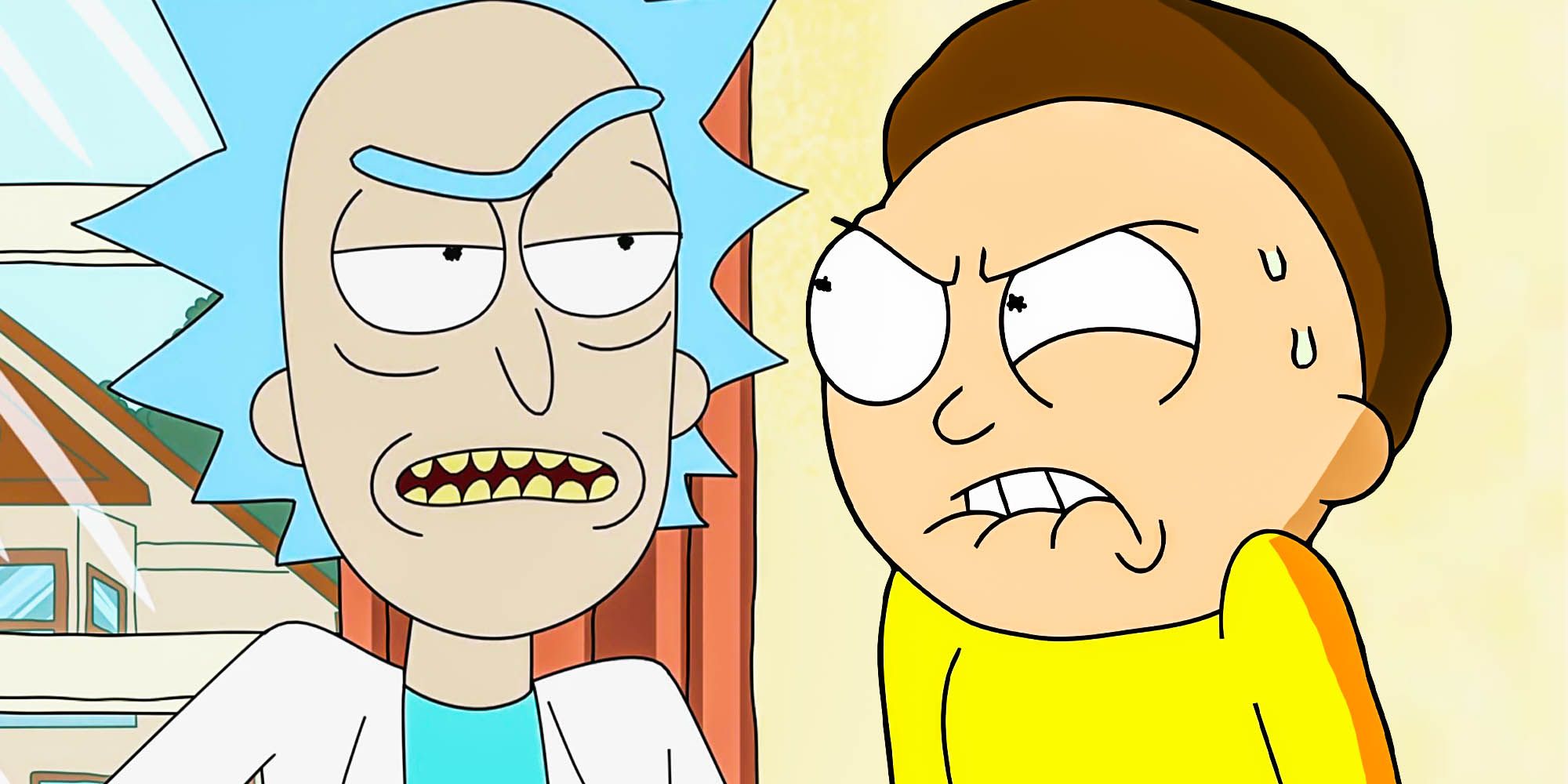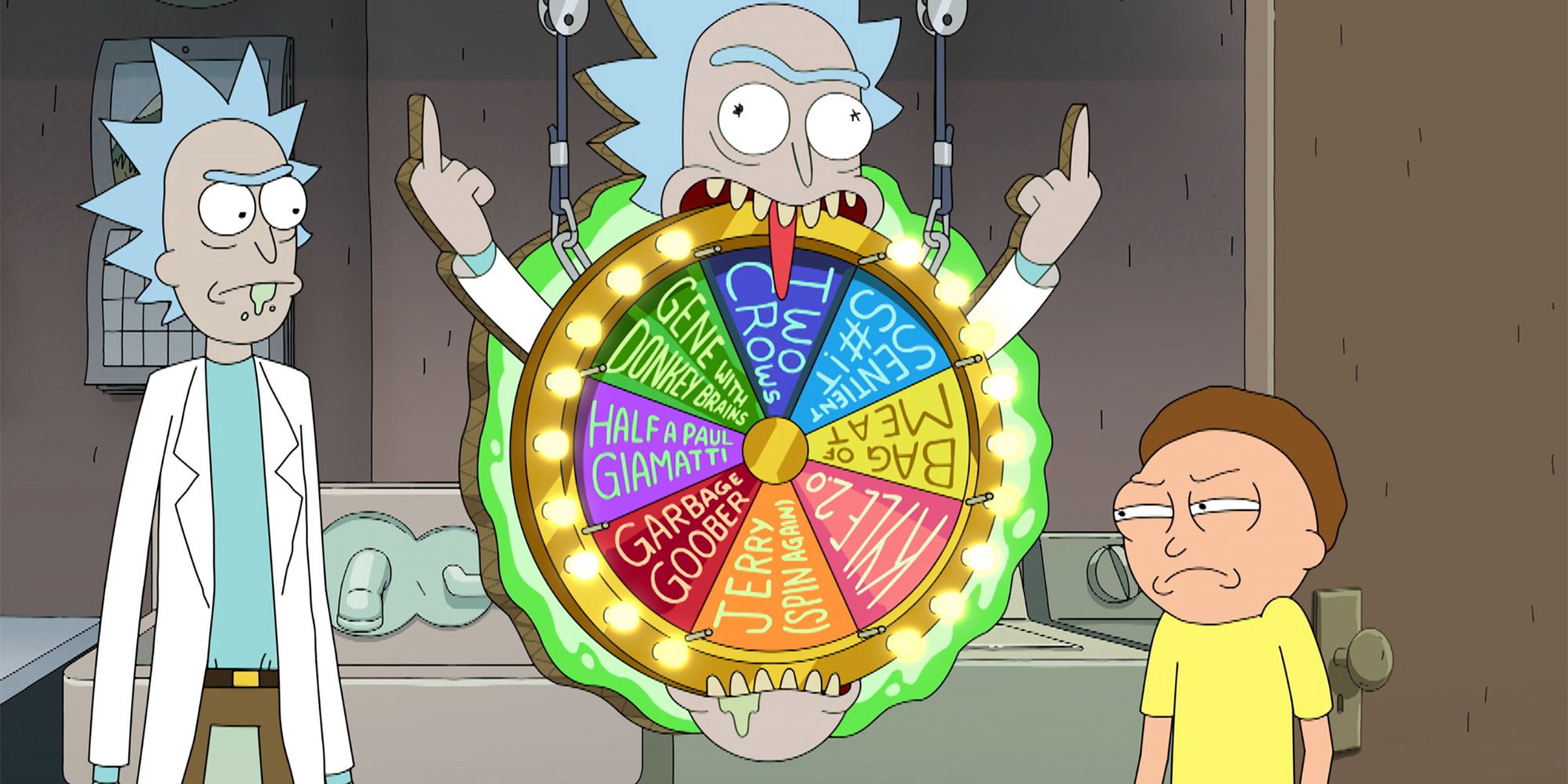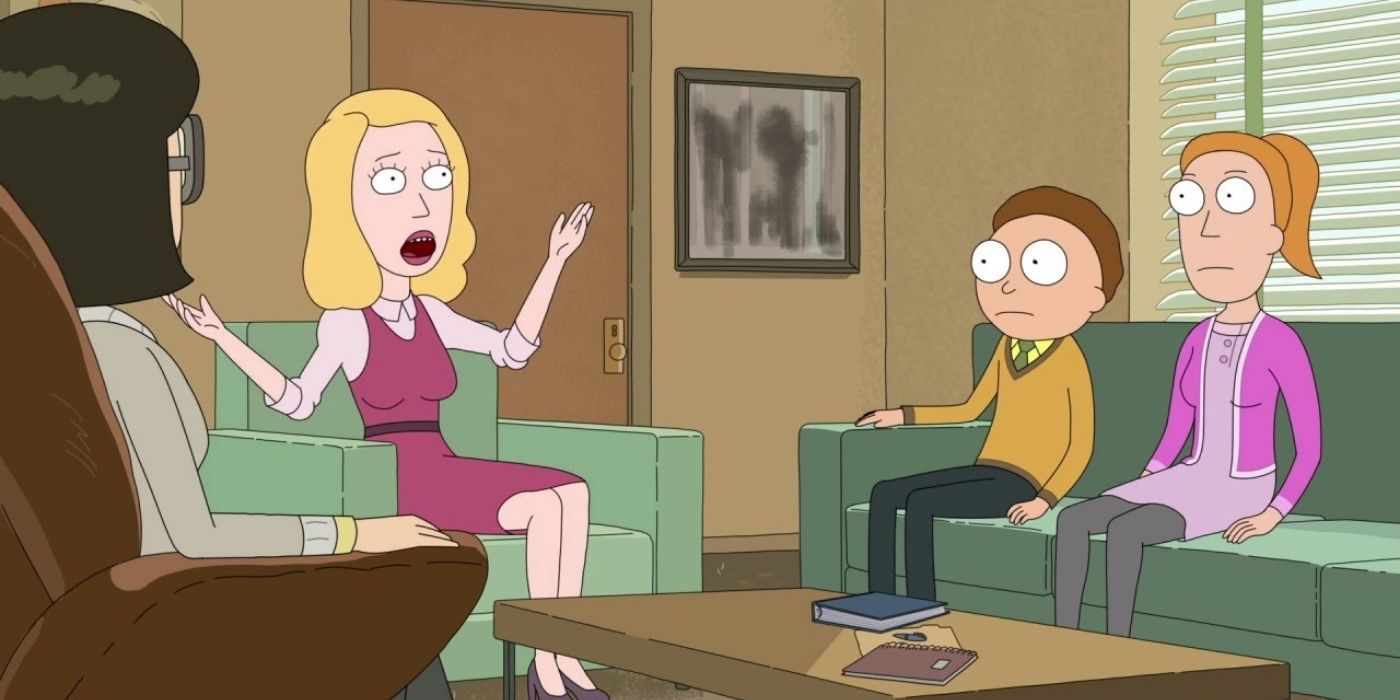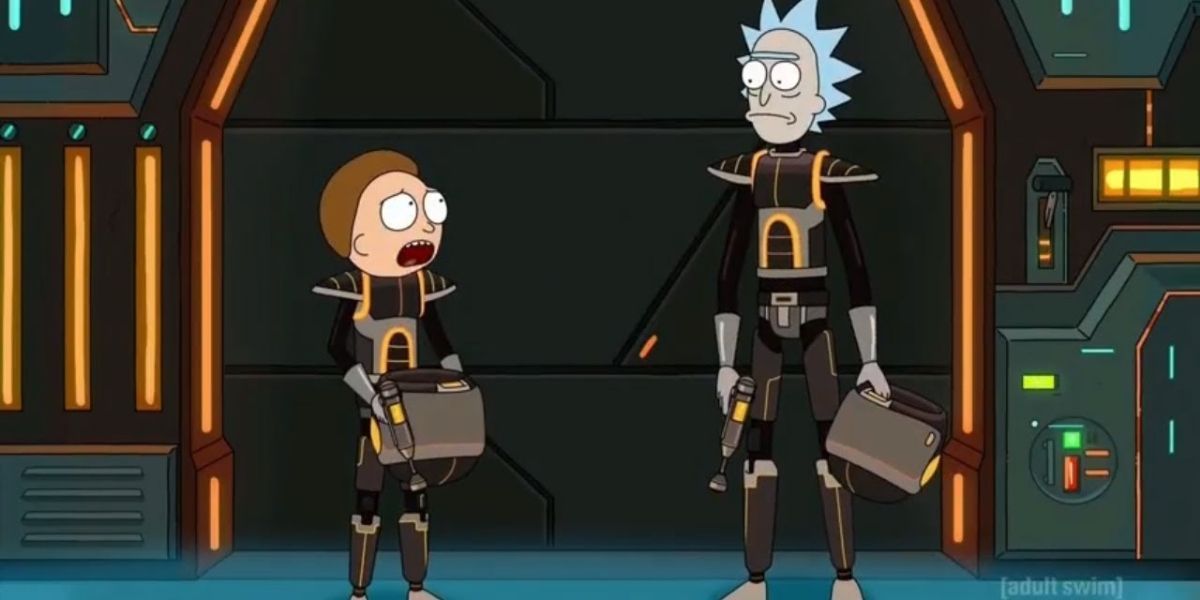"Forgetting Sarick Mortshall" sees Rick and Morty explore their toxic relationship, and while it might be best for the duo to split for their own health, the season 5 finale ensures that won't happen, for better or for worse. Rick is a pathological nightmare to work with, and his demeaning and actively hurtful behavior towards Morty outweighs his too-few, too-far-between moments of grandfatherly affection. More often than not, the two interact with little to no care for their family station, simply as sci-fi god master and teenaged dolt servant. But as unhealthy an example as their dynamic sets, the show is built around that conflict — and it shows no signs of stopping, not for 100 years.
The central conceit to Rick and Morty is a parody of Back to the Future: what if Doc Brown was also a drunk and a nihilist, and what if Marty was his moron grandson? From there, the structure of the show was fleshed out: the Smith family added in to round out the situational comedy, the sci-fi adventures as opportunities for parody and metatextual criticism, the backstory elements teased until fully developed and revealed. Now, with five seasons of material to examine, some fans have declared the central duo's relationship irreparably toxic. The show appears to have taken notice, as season 5 episode 9 ends with the two going their separate ways.
The separation doesn't last long, however, and Rick and Morty reunite in the season finale "Rickmurai Jack." This waffling is nothing new to the show. Plenty of past episodes have tackled the toxicity of their alliance: From the more worldbuilding-heavy "Close Rick-counters of the Rick Kind," which examines the diegetic basis of Ricks and Mortys pairing up, to the subtextual commentaries in "Rest and Ricklaxation" or "Claw and Hoarder: Special Ricktim's Morty," the show has examined their faults as partners at length. The duo have even nearly made dividing Smith family members a finale tradition, as season 2 ended with Rick and Morty going their separate ways, season 3 finished by booting Jerry, and season 4 let Beth loose upon the galaxy at its conclusion. But as much as the show wants to reconcile their grandpa and grandson in earnest, it's doomed to perpetuate their toxicity for as long as it runs.
Rick & Morty Season 5 Finale Explored The Toxic Relationship
In "Forgetting Sarick Mortshall," the title itself referencing the 2008 Jason Segal breakup rom-com, Rick replaces Morty with two crows after Morty calls his "you're replaceable" bluff. Such belittling is the last straw, and Morty finds his new friend Nick with whom he's linked by grandpa's portal fluid. As Nick and Morty go on adventures, Nick continually asserts that Morty's relationship with Rick was toxic, borrowing the language of counseling to liken their partnership to a relationship. In the end, when the rebound goes haywire and Morty has to kill a megalomaniacal Nick, he returns to Rick hopeful to get back together. But Rick has self-actualized as a result of his crow story, and he declares that what they had was "toxic" since Morty was afraid to be honest with him. So he sets off for a break with the crows, threatening to leave the relationship adrift through the off-season.
Rick and Morty has explored the relationship politics of its central characters before, and using the language of romantic partnership is nothing new to the series — so much so that the metaphor is directly acknowledged in the subsequent episode "Rickmurai Jack," when Crowscare makes clear his affair with the crows is more than just "adventuring." Season 3's "Rest and Ricklaxation" has Rick and Morty remove their 'toxins' in a spa, revealing that the essence of their disagreeable natures is understood by both of them to be toxic, as is, in Rick's case, his latent love for his grandson. "Big Trouble in Little Sanchez" explored relationship dynamics by dissecting Beth and Jerry's romantic quagmire at intergalactic couples therapy. Rick and Morty again made high-fantasy allusions to relationships and infidelity in "Claw and Hoarder: Special Ricktim's Morty," where the operative metaphor was 'soul-bonding.'
Rick & Morty: Why The Show Needs To Change The Core Dynamic
As a result, the toxic relationship angle has become well-worn territory for the show. After five seasons, Rick and Morty has begun repeating storylines. The intrinsic flaw of series programming is that characters and situations must be durable enough to mine seasons upon seasons of material out of the concept while allowing for audiences to drop in at any point and still understand the dynamics, but also fresh and interesting enough to keep devoted fans hooked. When a series breaks from its guiding principles to earn a cheap laugh or tug at heartstrings out of pocket, these are telltale signs of burnout. In true Rick and Morty fashion, the writers got ahead of that one too, toying with the notion in the exceedingly-metatextual "Never Ricking Morty," in which Story Lord threatens to burn them out with lousy human moments and character revivals.
So the question then becomes: how does Rick and Morty evolve while remaining true to its roots? The answer may lie in the Smith family, as making greater use of its supporting characters can help extend a show's creative lifetime. Rick has made Summer his sidekick on more adventures in season 5, and grandpa has taken the B or C story backseat to Morty, Summer, Beth, and Jerry on several occasions. Some efforts to pump the gas have paid off better than others (more of Keith David's President in season 5 pleased fans — but the incest baby, not so much). Perhaps splitting up the central duo is another viable way to prolong the creative intrigue of Rick and Morty.
Rick & Morty Needs The Toxic Relationship To Work
But every Rick needs a Morty, and every Morty a Rick. To divide the duo would be anathema to the bones of the show and an indicator of burnout. The writers seemed to understand this, having quickly dismissed the notion of a prolonged breakup in the actual finale "Rickmurai Jack." Making it a Citadel episode — one which directly addresses the show's longest-running serial canon element — helped expedite the exit from a fundamentally short-lived breakup thread. The season 5 finale breaks the Rick and Morty format only momentarily, promising more classic adventures in the future.
Rick remains a narcissist, and Morty is hopelessly subservient to his abuse. That's the dynamic from which the show generates its comedy. For all the agency Morty has gained since the pilot, for all the pegs Rick's been knocked down over the course of 5 seasons, their love-hate relationship must remain for Rick and Morty to stave off Story Lord's final solution. This may mean Rick and Morty will, in effect, continue to advertise what amounts to a toxic relationship, as explored in an ever-growing list of episodes that play on the romantic metaphor. While this sets an ethically fraught example, viewers looking to an Adult Swim tentpole property for moral guidance may be better served elsewhere.




